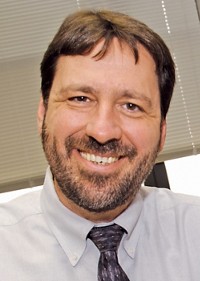Advertisement
Grab your lab coat. Let's get started
Welcome!
Welcome!
Create an account below to get 6 C&EN articles per month, receive newsletters and more - all free.
It seems this is your first time logging in online. Please enter the following information to continue.
As an ACS member you automatically get access to this site. All we need is few more details to create your reading experience.
Not you? Sign in with a different account.
Not you? Sign in with a different account.
ERROR 1
ERROR 1
ERROR 2
ERROR 2
ERROR 2
ERROR 2
ERROR 2
Password and Confirm password must match.
If you have an ACS member number, please enter it here so we can link this account to your membership. (optional)
ERROR 2
ACS values your privacy. By submitting your information, you are gaining access to C&EN and subscribing to our weekly newsletter. We use the information you provide to make your reading experience better, and we will never sell your data to third party members.
Business
Risk-Sharing Pacts: Fox Foundation Moves Beyond Venture Philanthropy
by Lisa M. Jarvis
November 5, 2012
| A version of this story appeared in
Volume 90, Issue 45
Most entrepreneurial patient advocacy groups focus on investing in drug candidates at biotech companies. Nonprofits hope their venture philanthropy dollars will remove enough risk from a biotech’s early-stage compound to entice others to make a larger investment down the road.
The Michael J. Fox Foundation, a nonprofit devoted to finding cures for Parkinson’s disease, has added a twist to its venture philanthropy activities. The organization announced plans in April to conduct a clinical trial of AVE8112, a PDE4 inhibitor that had been abandoned by Sanofi. The foundation’s hope is that good results will prompt the French drug firm to bring the compound back in-house and pay for the rest of its clinical development.
The collaboration between Sanofi and the Fox Foundation began more than two years ago, when the partners sat down to discuss Sanofi’s Parkinson’s disease portfolio and explore ways to work together.
The company had recently shelved AVE8112, which interacts with enzymes in the central nervous system. Sanofi completed Phase I testing of the molecule in Alzheimer’s disease patients where it was hoped to lessen cognitive deterioration. It is safe, but “for business reasons” the drug firm was uninterested in pursuing it further, says Thomas Rooney, head of translational research in Sanofi’s neurodegenerative diseases group.
At the same time, the Fox Foundation was trying to launch a program to address the cognitive deficits associated with Parkinson’s disease. Although motor symptoms are a hallmark of the disease, impaired cognition is “a very underappreciated clinical problem, for which there are very weak or limited therapeutic options,” Rooney notes.
The Fox Foundation’s advisers believed AVE8112 might represent an advance, prompting the nonprofit to forge what its chief executive officer, Todd Sherer, likes to call a risk-sharing pact. The Fox Foundation will pay for a Phase Ib trial; Sanofi will provide the drug substance and background documentation from earlier tests. Sanofi then has an option to bring the compound back in-house; if the firm declines the option, the nonprofit can develop the drug independently.
Just five years ago, Sherer contends, this kind of deal would not have come together. “Companies are very much looking for innovative ways to advance their therapies,” he says, and they are more open to letting outsiders take a look at the compounds sitting on their shelves.
But the willingness to collaborate is not just about a shift at big pharma. The Fox Foundation itself now has almost six years of venture philanthropy experience under its belt, a more established staff, and a track record that Sanofi and other companies can assess. “I think they appreciate the focus and knowledge that foundations can bring,” Sherer says.





Join the conversation
Contact the reporter
Submit a Letter to the Editor for publication
Engage with us on Twitter